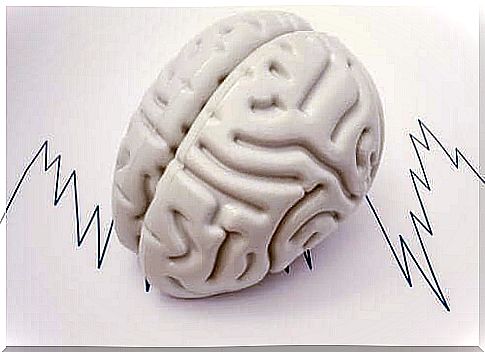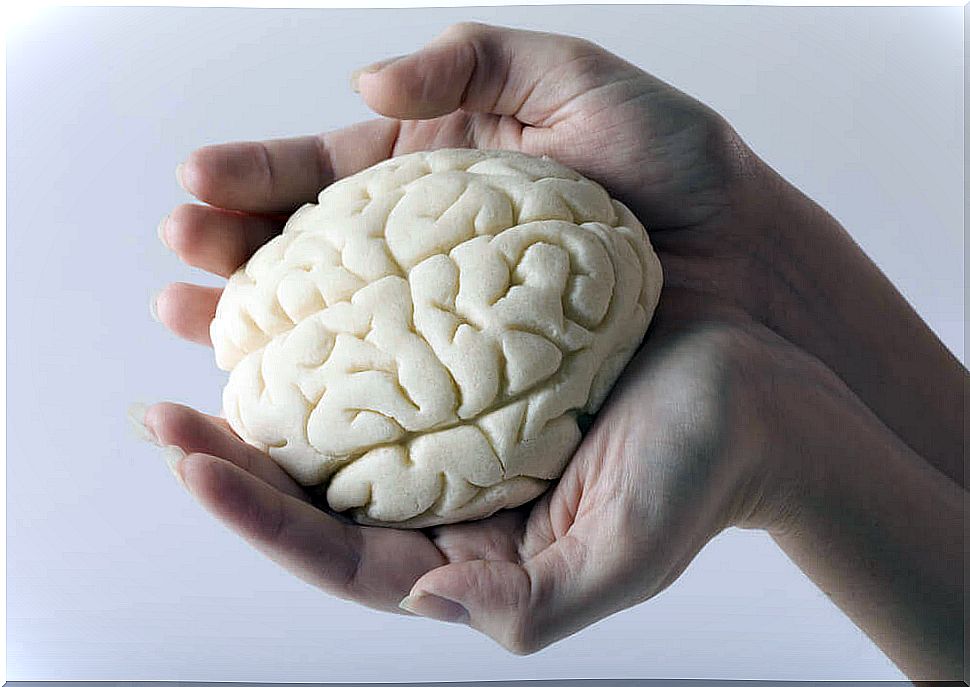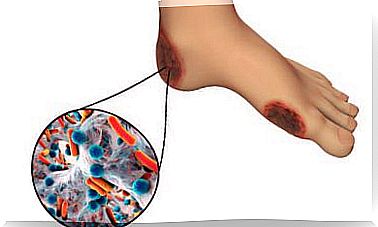How Does COVID-19 Affect The Brain?
New evidence suggests that the coronavirus is able to harm organs other than the lungs. Some neurologists have explained how it affects the brain, and we tell you about it in this article.

Knowing how COVID-19 affects the brain is one of the health team’s new concerns. There is already some evidence indicating kidney and heart disease as well, so we are starting to talk about a multi-system disease.
This marks a difference with other viral pathologies such as the flu, for which we only have respiratory symptoms, and at most fever. Research on the coronavirus indicates that ACE2 cell receptors are the keys to accessing different cells in the body.
The situation is that the ACE2 receptor, as we will explain in this article, is present in multiple sites in humans. This is how COVID-19 affects the brain using the affinity for this protein.
It is important to stress that the indicative symptoms par excellence remain the same: fever, cough, fatigue and respiratory distress. But more and more people are being made aware of the secondary signs that can lead to early attention, which saves time. We have already mentioned visual problems and loss of smell. Perhaps the neurological question should now be added.
ACE2 receptor explains how COVID-19 affects the brain
Coronaviruses have an outer crown-like conformation, and that’s where their name comes from. This crown is made up of spicules which have the proteins to access human cells. The human receptor is the ACE2 protein.
The receptor exists in the human body, as we know, to interact in a system called renin-angiotensin. This system of hormones and internal substances is actively involved in the regulation of blood pressure. The lungs, heart and kidneys are therefore involved.
But COVID-19 affects the brain because we also have ACE2 receptors on certain neurons. Although there is no complete confirmation of neurotropism – neuron affinity for SARS-CoV-2 – the suspicion is founded.
The relevance of the ACE2 receptor is essential to understanding coronavirus death. Different series reveal that hypertensive patients constitute a group with a high incidence of lethality, which could be explained by the influence of the renin-angiotensin system.

Symptoms that reveal how COVID-19 affects the brain
The lack of smell, which emerged as an early symptom of the coronavirus, warned by medical associations around the world, is attributed to the neurological tropism of SARS-CoV-2.
The name of the sign is anosmia, and neurologists agree that it occurs because of problems in the neurons of the olfactory system.
Cases of people infected with coronaviruses having had myositis – muscle inflammation -, Guillain-Barré syndrome and meningitis have also been described. All of them can refer to the central and peripheral nervous system.
A significant risk of brain damage from COVID-19 is linked to the vascularization of the brain. Besides the possible tropism of SARS-CoV-2 towards neurons, the inner layers of the cerebral arteries can be damaged during infection.
This microscopic endothelial lesion is known as microangiopathy. In the worst case, it leads to intracerebral hemorrhage and stroke.
Two pathways of brain damage due to coronavirus

There are believed to be two pathways that COVID-19 disease follows to affect the brain. One of these pathways is more direct and is based on the hypothesis of the neuronal tropism of the virus. The other path is indirect and is explained by the multiple organs that go into shock when the patient is in serious condition in the intensive care units.
The direct route is not completely proven, as we have already said. SARS-CoV-2 would enter neurons via the ACE2 receptor, in the same way that it enters the lung and kidney.
On the other hand, the indirect path is that which considers the evolution of the coronavirus in the body. First, there is the respiratory framework, then consolidated pneumonia, failure of multiple organs, reduced blood flow to the brain and, consequently, the death of neurons that do not receive enough oxygen.
Does COVID-19 affect the brain?
We know that COVID-19 affects the brain, either directly or indirectly. Scientific research continues to inform and reveal new aspects of this pandemic.
For ICU healthcare staff, this knowledge is essential because they can tailor their therapy based on the results obtained.
This valuable information improves patient survival, which gives hope in the uncertainty of the global coronavirus epidemic.









